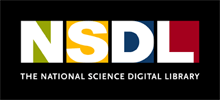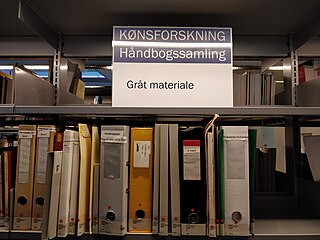Related Research Articles
A learning object is "a collection of content items, practice items, and assessment items that are combined based on a single learning objective". The term is credited to Wayne Hodgins, and dates from a working group in 1994 bearing the name. The concept encompassed by 'Learning Objects' is known by numerous other terms, including: content objects, chunks, educational objects, information objects, intelligent objects, knowledge bits, knowledge objects, learning components, media objects, reusable curriculum components, nuggets, reusable information objects, reusable learning objects, testable reusable units of cognition, training components, and units of learning.

The Open Archives Initiative (OAI) was an informal organization, in the circle around the colleagues Herbert Van de Sompel, Carl Lagoze, Michael L. Nelson and Simeon Warner, to develop and apply technical interoperability standards for archives to share catalogue information (metadata). The group got together in the late late 1990s and was active for around twenty years. OAI coordinated in particular three specification activities: OAI-PMH, OAI-ORE and ResourceSync. All along the group worked towards building a "low-barrier interoperability framework" for archives containing digital content to allow people harvest metadata. Such sets of metadata are since then harvested to provide "value-added services", often by combining different data sets.
CiteSeerX is a public search engine and digital library for scientific and academic papers, primarily in the fields of computer and information science.

National Science Digital Library (NSDL) of the United States is an open-access online digital library and collaborative network of disciplinary and grade-level focused education providers operated by the Institute for the Study of Knowledge Management in Education. NSDL's mission is to provide quality digital learning collections to the science, technology, engineering, and mathematics (STEM) education community, both formal and informal, institutional and individual. NSDL's collections are refined by a network of STEM educational and disciplinary professionals. Their work is based on user data, disciplinary knowledge, and participation in the evolution of digital resources as major elements of effective STEM learning.
In library and archival science, digital preservation is a formal process to ensure that digital information of continuing value remains accessible and usable in the long term. It involves planning, resource allocation, and application of preservation methods and technologies, and combines policies, strategies and actions to ensure access to reformatted and "born-digital" content, regardless of the challenges of media failure and technological change. The goal of digital preservation is the accurate rendering of authenticated content over time.
An institutional repository (IR) is an archive for collecting, preserving, and disseminating digital copies of the intellectual output of an institution, particularly a research institution. Academics also utilize their IRs for archiving published works to increase their visibility and collaboration with other academics. However, most of these outputs produced by universities are not effectively accessed and shared by researchers and other stakeholders. As a result academics should be involved in the implementation and development of an IR project so that they can learn the benefits and purpose of building an IR.

Grey literature is materials and research produced by organizations outside of the traditional commercial or academic publishing and distribution channels. Common grey literature publication types include reports, working papers, government documents, white papers and evaluations. Organizations that produce grey literature include government departments and agencies, civil society or non-governmental organizations, academic centres and departments, and private companies and consultants.

BASE is a multi-disciplinary search engine to scholarly internet resources, created by Bielefeld University Library in Bielefeld, Germany. It is based on free and open-source software such as Apache Solr and VuFind. It harvests OAI metadata from institutional repositories and other academic digital libraries that implement the Open Archives Initiative Protocol for Metadata Harvesting (OAI-PMH), and then normalizes and indexes the data for searching. In addition to OAI metadata, the library indexes selected web sites and local data collections, all of which can be searched via a single search interface.
Preservation metadata is item level information that describes the context and structure of a digital object. It provides background details pertaining to a digital object's provenance, authenticity, and environment. Preservation metadata, is a specific type of metadata that works to maintain a digital object's viability while ensuring continued access by providing contextual information, usage details, and rights.
Digital curation is the selection, preservation, maintenance, collection, and archiving of digital assets. Digital curation establishes, maintains, and adds value to repositories of digital data for present and future use. This is often accomplished by archivists, librarians, scientists, historians, and scholars. Enterprises are starting to use digital curation to improve the quality of information and data within their operational and strategic processes. Successful digital curation will mitigate digital obsolescence, keeping the information accessible to users indefinitely. Digital curation includes digital asset management, data curation, digital preservation, and electronic records management.

Library and Information Science (LIS) are two interconnected disciplines that deal with information management. This includes organization, access, collection, and regulation of information, both in physical and digital forms.

Metadata is "data that provides information about other data", but not the content of the data itself, such as the text of a message or the image itself. There are many distinct types of metadata, including:

A digital library is an online database of digital objects that can include text, still images, audio, video, digital documents, or other digital media formats or a library accessible through the internet. Objects can consist of digitized content like print or photographs, as well as originally produced digital content like word processor files or social media posts. In addition to storing content, digital libraries provide means for organizing, searching, and retrieving the content contained in the collection. Digital libraries can vary immensely in size and scope, and can be maintained by individuals or organizations. The digital content may be stored locally, or accessed remotely via computer networks. These information retrieval systems are able to exchange information with each other through interoperability and sustainability.
The Handle System is a proprietary registry assigning persistent identifiers, or handles, to information resources, and for resolving "those handles into the information necessary to locate, access, and otherwise make use of the resources". As with handles used elsewhere in computing, Handle System handles are opaque, and encode no information about the underlying resource, being bound only to metadata regarding the resource. Consequently, the handles are not rendered invalid by changes to the metadata.
Folksonomy is a classification system in which end users apply public tags to online items, typically to make those items easier for themselves or others to find later. Over time, this can give rise to a classification system based on those tags and how often they are applied or searched for, in contrast to a taxonomic classification designed by the owners of the content and specified when it is published. This practice is also known as collaborative tagging, social classification, social indexing, and social tagging. Folksonomy was originally "the result of personal free tagging of information [...] for one's own retrieval", but online sharing and interaction expanded it into collaborative forms. Social tagging is the application of tags in an open online environment where the tags of other users are available to others. Collaborative tagging is tagging performed by a group of users. This type of folksonomy is commonly used in cooperative and collaborative projects such as research, content repositories, and social bookmarking.
Islandora is a free and open-source software digital repository system based on Drupal and integrating with additional applications, including Fedora Commons. It is open source software. Islandora was originally developed at the University of Prince Edward Island by the Robertson Library and is now maintained by the Islandora Foundation, which has a mission to, "promote collaboration through transparency and consensus building among Islandora community members, and to steward their shared vision for digital curation features through a body of software and knowledge."
Enhanced publications or enhanced ebooks are a form of electronic publishing for the dissemination and sharing of research outcomes, whose first formal definition can be tracked back to 2009. As many forms of digital publications, they typically feature a unique identifier and descriptive metadata information. Unlike traditional digital publications, enhanced publications are often tailored to serve specific scientific domains and are generally constituted by a set of interconnected parts corresponding to research assets of several kinds and to textual descriptions of the research. The nature and format of such parts and of the relationships between them, depends on the application domain and may largely vary from case to case.
Data publishing is the act of releasing research data in published form for use by others. It is a practice consisting in preparing certain data or data set(s) for public use thus to make them available to everyone to use as they wish. This practice is an integral part of the open science movement. There is a large and multidisciplinary consensus on the benefits resulting from this practice.

Klaus Tochtermann is a professor in the Institute for Computer Science at Kiel University and also the director of the ZBW – German National Library of Economics – Leibniz Information Centre for Economics.
In linguistics and language technology, a language resource is a "[composition] of linguistic material used in the construction, improvement and/or evaluation of language processing applications, (...) in language and language-mediated research studies and applications."
References
- ↑ Campbell, Heather M, Christopher S Dieckman, Wesley Teal, and Harriet E Wintermute. “Improving Subject Headings for Iowa Indigenous Peoples.” Library Resources & Technical Services 66, no. 1 (2022): 48–59.
- ↑ Digital Library of Information Science & Technology (DLIST). University of Arizona. She was born in India, Madurai, state of Tamil Nadu.
- ↑ "Global Thinker: Anita Coleman". March 24, 2011. Archived from the original on 2011-03-24.
- ↑ "Cataloging Electronic Resources, 2005-2006". Association for Library Collections & Technical Services (ALCTS). July 25, 2007.
- ↑ "Metadata and Cataloging Education - Web Clearinghouse Prototype". February 12, 2012. Archived from the original on 2012-02-12.
- ↑ "Research Award". California Academic & Research Libraries. Archived from the original on October 10, 2015. Retrieved September 14, 2022.